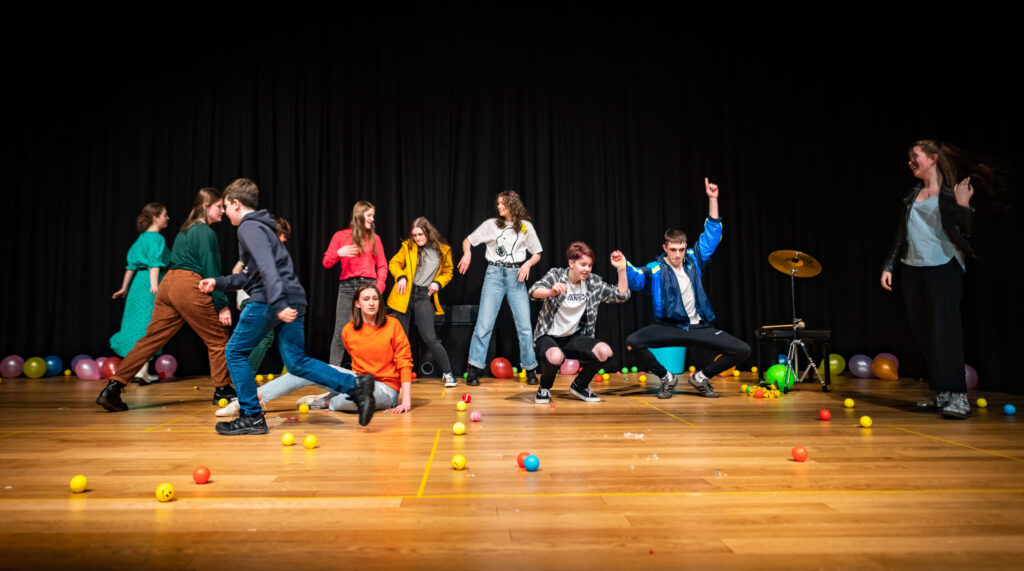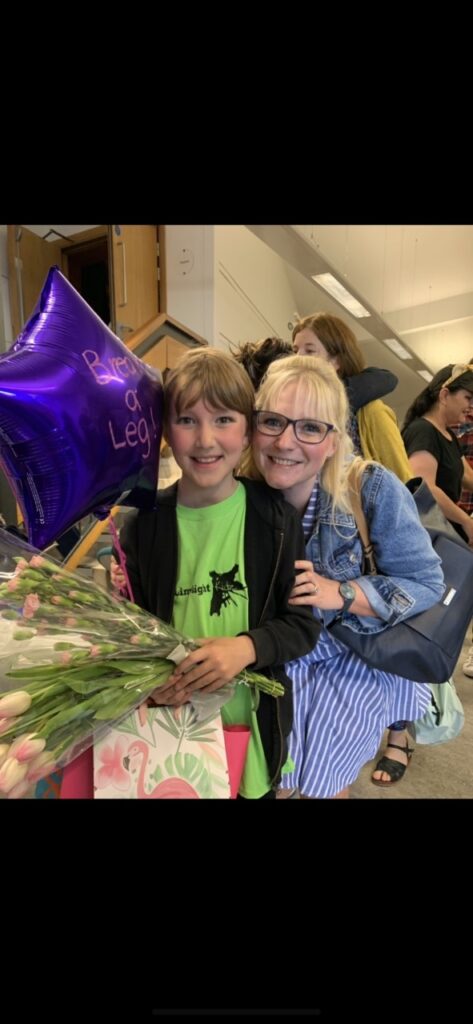Analysis
Analysis of the case studies revealed that the long-term impacts of participation in youth theatre are often multiple and intertwined.
Long-term impacts of participation in youth theatre on participants’ professional lives
The participants universally attributed elements of their work ethic, career successes, and personal sense of fulfillment to having been involved with youth theatre in their formative years.
The eight participants differed from one another in their varied careers to date. However, the experience of participating in youth theatre affected their career selection, with participants varying from directly choosing to work in roles within the creative sector, to identifying particular skills or aspects of their youth theatre experience which had resonated with them (for example: variety, storytelling, working with others) and seeking roles which included these. Many described their jobs, as varied as they were across the eight case studies, as being basically ‘acting’ or ‘playing a role’; they reported that this was something they were able to do confidently because of the skills and self-assurance which they gained through their youth theatre experience.
All of the participants directly attributed their emotional intelligence to youth theatre, describing ways in which their youth theatre experience had developed their active listening skills and enabled them to better understand people by reading their tone and body language. Consequently, the participants found themselves able to work well in teams. They reported easily finding common ground with diverse colleagues in order to diffuse any arising tensions.
Drawing together these skills, the participants described the ways in which becoming confident communicators and effective leaders had helped them in the workplace.
Long-term impacts of participation in youth theatre on participants’ personal lives
Many of the participants reflected on youth theatre as having been an extremely positive part of their teenage lives. As well as being a joyful experience and providing them with something constructive to do with their time, youth theatre proved to be vital to their self-expression. It provided a way to build confidence and discover who they really were. The participants largely attributed this to the sense of community created by their youth theatre leaders, the environment of kindness, compassion, and camaraderie fostered by their leaders, and the opportunity to meet both like-minded and different individuals in a space which was separate from the day-to-day pressures of school- and family-life.
Many of the participants formed friendships through youth theatre which have endured into adulthood, and some even met partners through youth theatre or other creative outlets which followed on later. Indeed, most of the youth theatre participants continue with theatre-based or other creative activities to this day.
These experiences have contributed to improved wellbeing and sense of purpose. They have their beginnings in the youth theatre experience itself, and have lasted well beyond.
Conclusions
The patterns in long-term impacts reported by the participants demonstrate where the value of the youth theatre experience lies.
Youth theatre broadened the horizons of the participants, enabling them to engage with new opportunities and requiring them to meet (and find ways to get on with) a new and diverse group of people. The youth theatre participants felt that they were more open-minded people as a consequence.
Youth theatre is a safe and equitable space where participants can express themselves openly and are accepted for who they are. At youth theatre the participants found a unique place to work through their issues and find like-minded peers, which developed confidence and feelings of personal value and ultimately led to embedded feelings of independence and self-belief.
The youth theatre workers were encouraging mentors in the lives of the participants and modelled positive leadership. As well as creating a supportive environment where the participants could develop their sense of self, some participants directly referenced their youth theatre workers as having had a continued positive influence on their own leadership style.
Youth theatre gave the participants multiple tools on which to draw in their adult lives. Undertaking collaborative creativity, playfulness, and improvisation in the youth theatre setting necessitated teamwork and trust, which enabled the participants to develop their emotional intelligence. Needing to be being calm under pressure and deal with the unpredictable helped them to build their resilience and confidence in trying new things.
Many of the participants noted that they felt grateful for having developed these skills and qualities during their teenage years, as many other adults in their lives had needed to learn these later.












